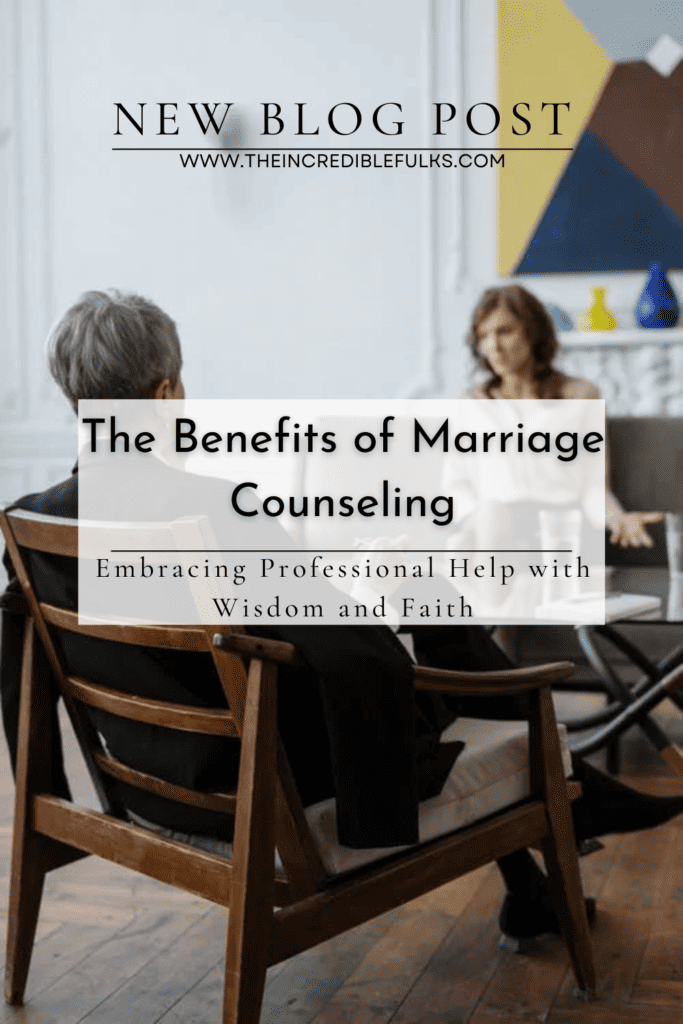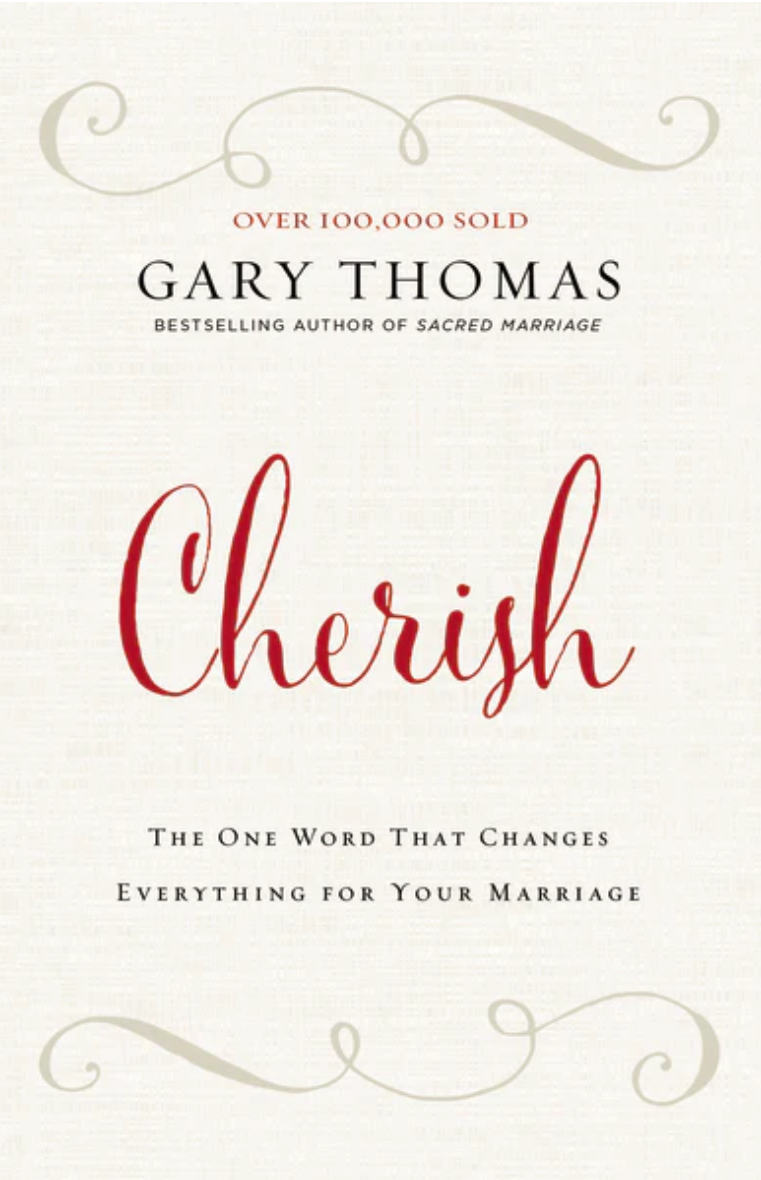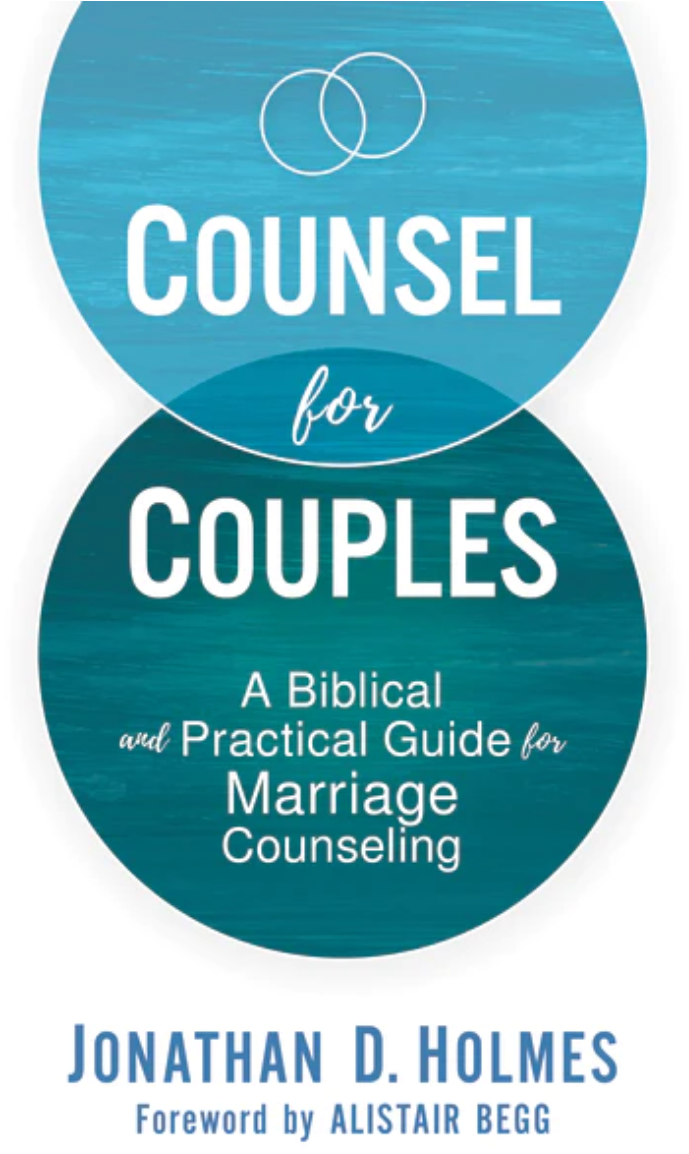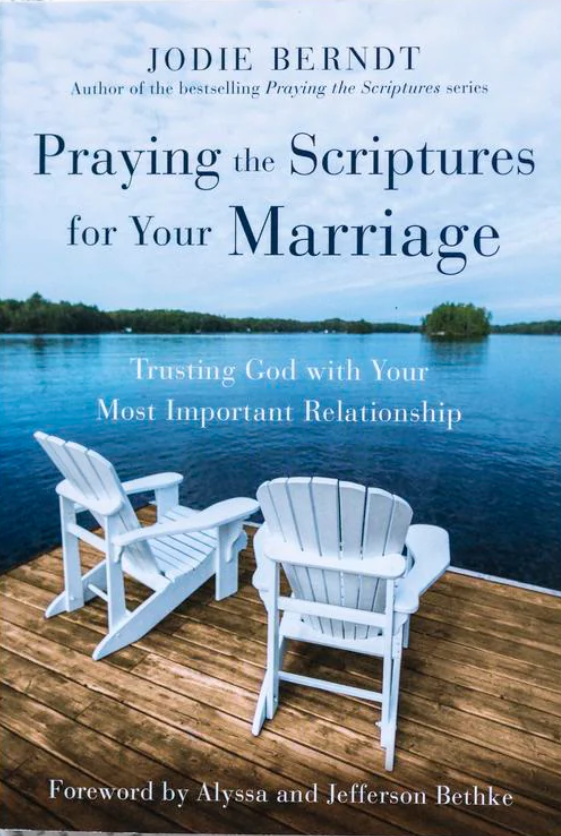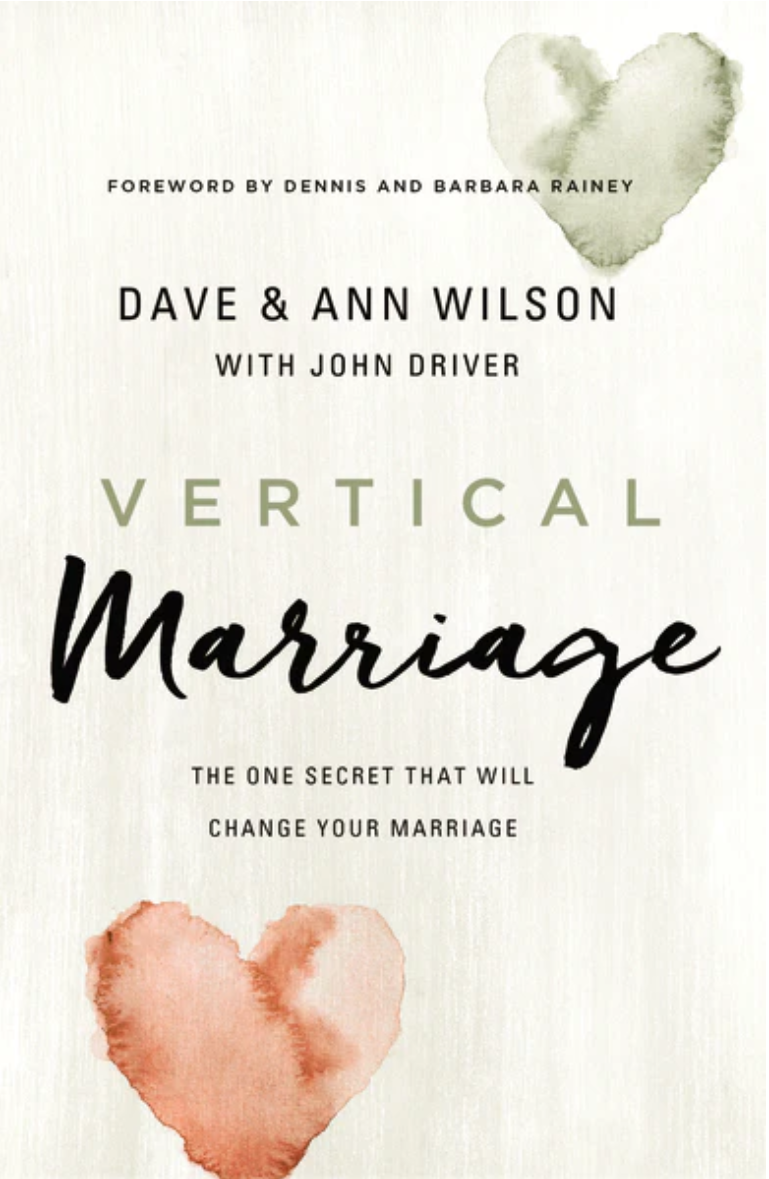Marriage, a sacred bond between two individuals, is a journey filled with love, joy, and challenges. As beautiful as this union can be, it's natural for couples to face difficulties that test the strength of their relationship. In times of distress (big or small), seeking professional help through marriage counseling can be a transformative and healing experience. Unfortunately, there still exists a stigma around seeking such support, hindering many couples from reaping the countless benefits marriage counseling offers. Let's break down the barriers of stigma and explore the advantages of marriage counseling, emphasizing the wisdom and guidance provided by both professional counselors and biblical scriptures.
While my husband was in Korea, our marriage was constantly tested, and the trust we had fluctuated. You can read how we nurtured our trust back in my article 6 Ways To Nurture Trust in Your Marriage While Your Spouse is Overseas.
When I suggested counseling to my husband after he got back, I told myself it was to fix HIM and finally get him to change the way he did things. Actually going to counseling changed my views and made me think less about HIS problems, and more about OUR problems. It made me think about how I contributed to the problem. Was I making it better or worse? What could I do to assist the situation? What if I were in his shoes, how would my perspective change? These are just some of the things counseling helped me with and I highly recommend finding a Christian counselor to help your marriage.
Breaking the Stigma
Seeking help through marriage counseling is not a sign of weakness; rather, it demonstrates courage and commitment to making the relationship work. Often, cultural norms and societal expectations perpetuate the stigma surrounding counseling, causing couples to avoid addressing their problems openly. However, by acknowledging the need for assistance, couples can gain the tools to build a stronger foundation and rediscover the love that brought them together in the first place.
“Plans fail for lack of counsel, but with many advisers, they succeed.”
Proverbs 15:22 (NIV)
When you said your vows to one another, that was you making a plan for your marriage. As with any plan, you need a third party to objectively look at your plan and give you advice on how to implement it. In marriage, seeking professional help through counseling aligns with this biblical wisdom, as it provides couples with experienced guidance to overcome challenges and navigate through rough waters.
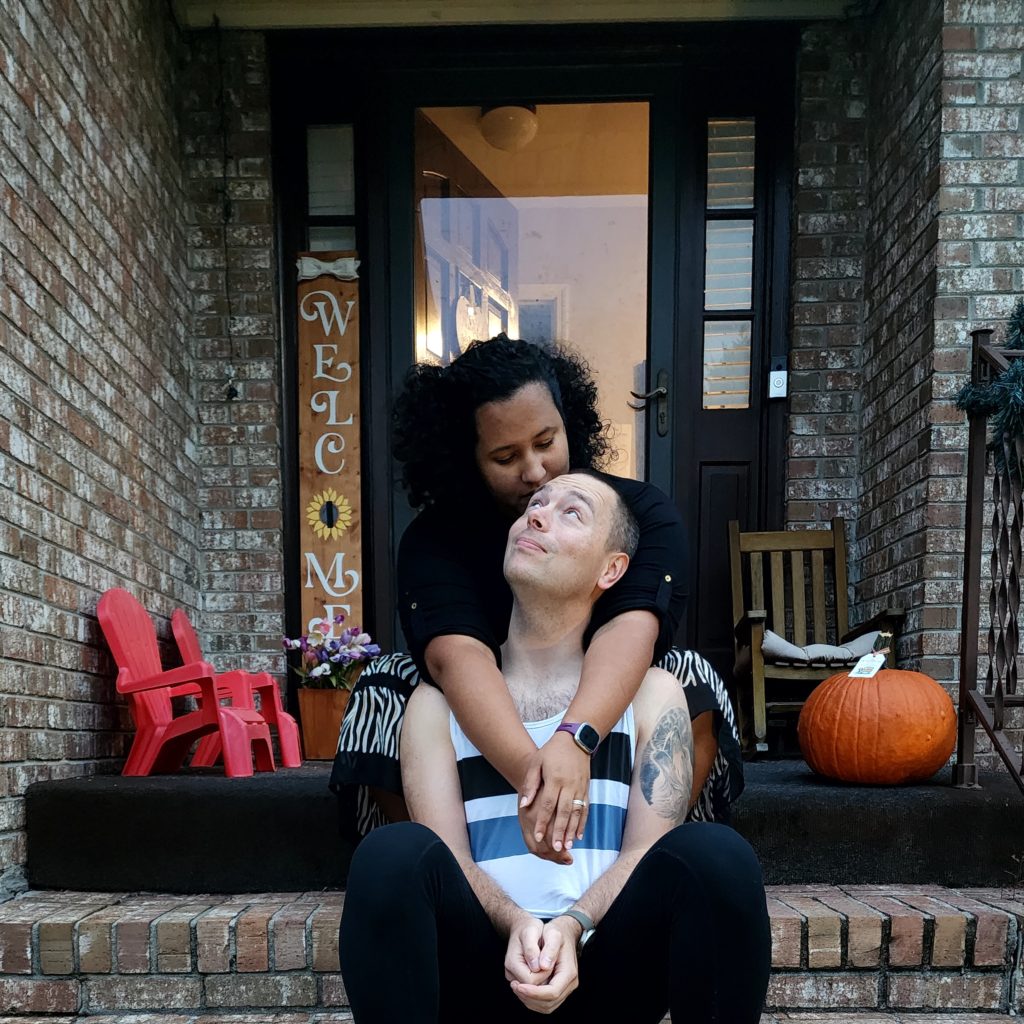
Highlighting the Benefits
Improved Communication
Communication is not just important, but absolutely VITAL to the health and longevity of a marriage. It forms the foundation upon which mutual understanding, respect, and love are built. In marital life, couples often encounter communication barriers that can lead to misunderstandings, resentment, and emotional distance.
This is where marriage counseling comes into play as a tool for healing and strengthening relationships. Counselors specialize in equipping couples with effective communication techniques, which are essential for getting through marital life. These techniques are not just talking, but also, deal with listening and understanding each other’s perspectives.
In the scripture, Ephesians 4:29 (NIV), we are reminded of the power of our words: “Let no corrupting talk come out of your mouths, but only such as is good for building up, as fits the occasion, that it may give grace to those who hear.” This verse shows the importance of POSITIVE and CONSTRUCTIVE communication in our relationships. It's not just about avoiding harmful words, but actively using our words to uplift and support our partners.
Your communication within your marriage needs to be a beacon of positivity and construction. This means steering away from destructive criticism, blame, or contempt. Instead, it involves nurturing an environment where both partners feel safe to express their thoughts, fears, and dreams.
Marriage counselors play a pivotal role in this process. They provide a neutral, supportive space where couples can learn and practice these skills. Many counselors use techniques like reflective listening, empathetic understanding, and non-confrontational language to help couples reshape their communication patterns. By guiding couples in how to rephrase their words, counselors help transform potentially destructive conversations into opportunities for growth and deeper understanding.
Tools
Counselors also often introduce exercises and practices that couples can use outside the therapy room. These tools are designed to help couples continue building their communication skills in daily life, turning every interaction into a chance to strengthen their bond. It is SO important that you practice what you learned daily. Write down the counsel you received and read it every morning so you can be sure to practice it every day. Each day you practice your communication is one day closer to a better marriage. Check out these 2 therapy journals to help you keep track of everything.
Strengthening Emotional Intimacy
Emotional intimacy is the very lifeblood of a deep, enduring connection between partners. It goes beyond the surface level of pleasant conversations and shared interests, reaching into the depths of understanding, empathy, and unconditional acceptance. In the context of marriage, emotional intimacy involves vulnerability, trust, and mutual support, creating a safe haven where both partners can be their true selves.
However, building and maintaining this level of intimacy is often full of challenges. Couples may encounter emotional barriers that stem from past experiences, unresolved traumas, or deeply ingrained insecurities. These issues can create an invisible wall between partners, hindering their ability to fully connect and share their innermost feelings.
Safe Environment
This is where counseling comes into the picture. Through professional guidance, couples can heal and rediscover their marriage. Counseling provides a safe and nurturing environment where individuals can explore and address their emotional baggage. It's a place where past hurts can be acknowledged and worked through, where insecurities can be brought into the light and faced with compassion.
The scripture captures the essence of this deep connection in the verse from the Song of Solomon: “Place me like a seal over your heart, like a seal on your arm; for love is as strong as death, its jealousy unyielding as the grave. It burns like blazing fire, like a mighty flame. Many waters cannot quench love; rivers cannot sweep it away.” This verse beautifully illustrates the intensity and resilience of love, suggesting that true emotional intimacy can withstand even the toughest challenges.
In counseling, couples learn to communicate their feelings openly and without fear. They discover how to listen empathetically, offering validation and understanding rather than judgment. This process often involves developing new communication skills, such as expressing emotions in a healthy way, actively listening, and providing supportive feedback.
Breaking Patterns
Counseling also helps in identifying and breaking patterns that may be sabotaging your emotional intimacy. This could include behaviors like avoidance, defensiveness, or excessive criticism. By recognizing and altering these patterns, couples can create a more supportive and loving dynamic.
The journey towards deeper emotional intimacy is not just about overcoming obstacles; it’s also about building a stronger, more passionate, and more fulfilling relationship. As couples learn to share their deepest fears, joys, and dreams, they forge a bond that is both resilient and tender – a bond that is well-captured by the metaphor of a seal over the heart, unbreakable and enduring.
Check out this book by Gary Thomas that will help you reverse the sabotaging patterns in your marriage.
Conflict Resolution
Conflict is an inevitable aspect of any relationship, especially in marriage. It arises from differences in opinions, values, and expectations. However, the manner in which couples handle these conflicts is what truly determines the resilience and strength of their marital bond. Rather than being a sign of a troubled relationship, conflict, when approached constructively, can lead to growth and a deeper understanding between partners.
Marriage counseling plays an invaluable role in teaching couples effective conflict-resolution skills. A key aspect of this is creating a safe and neutral space where both partners can express their viewpoints without fear of judgment or reprisal. Couples learn to approach conflicts not as adversaries, but as a team working towards a common goal of understanding and resolution.
Empathy
One of the major skills taught in counseling is empathy. This involves truly listening to and understanding each other's perspectives, even when they differ. Empathy allows couples to move beyond the surface issue and get to the underlying emotions and needs. When partners feel heard and understood, they are more likely to be open to finding a middle ground.
Respectfulness
Another essential skill is respectful communication. This means learning to express thoughts and feelings in a way that is clear and assertive, yet non-confrontational. It involves avoiding accusatory language and instead focusing on expressing one's own needs and feelings.
The verse from Matthew 18:15 (NIV), “If your brother or sister sins, go and point out their fault, just between the two of you. If they listen to you, you have won them over,” provides a biblical perspective on conflict resolution. It emphasizes the importance of addressing conflicts privately and directly, with the intention of reconciliation rather than condemnation. This approach aligns with the principles taught in counseling, where the focus is on understanding and resolving conflicts in a way that strengthens the relationship.
Counseling helps couples recognize and build upon their individual strengths. Each partner brings unique qualities to the marriage, and these can be leveraged to enhance conflict resolution. For instance, a woman may bring strengths like emotional intelligence, patience, or nurturing, which can be instrumental in understanding and resolving conflicts. Recognizing and valuing these strengths not only empowers the individual but also enriches the relationship.
Read more about the strengths of women in marriage.
Counseling also encourages couples to work on their weaknesses and learn from each other. It's about creating a balance where both partners can grow and evolve together, turning conflicts into opportunities for strengthening their bond. Check out this book called Counsel for Couples.
Healing Breaches of Trust
Trust is the cornerstone of any marital relationship. It creates a foundation of security and predictability upon which love can flourish. However, when this trust is breached, it can shake the very core of a marriage, leading to feelings of betrayal, hurt, and uncertainty. Healing after such hurt is challenging and often complex, involving layers of emotion and the need for a deep, fundamental rebuilding of the relationship.
Marriage counseling is so helpful in supporting couples through this process. The journey toward forgiveness and rebuilding trust is not a straight path; it requires patience, understanding, and a commitment to work through difficult emotions and memories. A counselor acts as a guide, providing a safe and supportive environment where both partners can express their feelings and perspectives.
Acknowledgment
One of the first steps in this process is acknowledging the breach of trust and understanding its impact on the relationship. This involves open and honest communication, where the hurt party can express their feelings and the offending party can take responsibility for their actions. It's about creating a space where emotions are validated, and the pain caused by the breach of trust is acknowledged.
Rebuilding
The next step involves the slow and careful process of rebuilding trust. This is NOT something that just happens overnight; it requires consistent effort and commitment from both partners. Counseling can provide strategies and tools to help rebuild trust, such as setting boundaries, establishing new communication patterns, and creating shared goals for the relationship.
Proverbs 3:3-4 (NIV) beautifully illustrates the essence of this journey: “Let love and faithfulness never leave you; bind them around your neck, write them on the tablet of your heart. Then you will win favor and a good name in the sight of God and man.” This scripture highlights the high value of trust and loyalty in relationships. It suggests that these virtues should be deeply ingrained in our hearts, guiding our actions and decisions.
In the context of marriage, this means actively working to foster love and faithfulness, even in the face of challenges. It involves a commitment to honesty, transparency, and loyalty. In counseling, couples can explore ways to embody these values in their relationship, helping to create a new foundation of trust.
Renewal
Renewing commitment to the marriage is also an important part of the healing process. This may involve redefining the relationship's goals and expectations, reconnecting with the reasons why the couple came together in the first place, and renewing their vows of commitment to each other.
Maybe you don't have the resources available to seek professional counseling right now. Check out some of these books that might help assist in communicating in your marriage.
Conclusion
Marriage counseling is a powerful resource that offers hope, healing, and growth for couples in need. By addressing the stigma around seeking professional help, we can embrace the wisdom found in biblical scriptures, encouraging couples to nurture their relationships with grace, love, and understanding. Remember, seeking assistance is not a sign of failure but rather a testament to the dedication and commitment to a lasting, fulfilling, and God-honoring marriage.
I would love to know how I can pray for you! Feel free to email me to let me know how I can!
